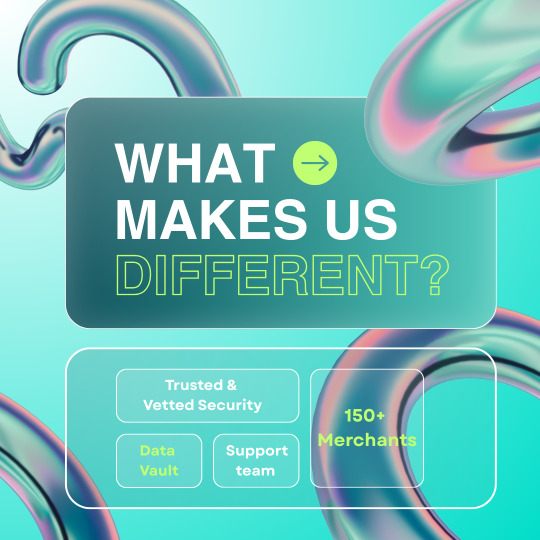#business
Explore tagged Tumblr posts
Text

639 notes
·
View notes
Text
Black Market Dollar (USD) To Naira (NGN) Exchange Rate Today 15th April 2025
What is the Dollar to Naira Exchange rate at the black market also known as the parallel market (Aboki fx)? See the black market Dollar to Naira exchange rate for 14th April, below. You can swap your dollar for Naira at these rates. How much is a dollar to naira today in the black market? Dollar to naira exchange rate today black market (Aboki dollar rate): The exchange rate for a dollar to naira…

View On WordPress
1 note
·
View note
Text
Strategic Allignment


Alex Morgan x Reader imagine
The dining room of my father’s mansion was a monument to old money, a place that could easily have served as the backdrop for some dull historical drama about the aristocracy: glimmering chandeliers that cast shadows over the polished mahogany table, velvet curtains that hung like somber reminders of the walls closing in.
The air was thick with something far worse than just fine wine. It was the scent of suffocating expectations. I knew it, and Alex Morgan, the American soccer prodigy sitting across from me, seemed to know it too. Both of us, trapped in the tangled web my father had woven for us, had adopted the same uncomfortable posture, shoulders stiff, eyes darting away from the elephant in the room—the very one sitting right between us, looking smug at the head of the table: my father.
I could feel the weight of his gaze, trying to drill through me, but I wasn’t going to let him win. I never did. With a flick of my wrist, I broke the silence, my voice smooth but with the bite that had earned me a reputation. "Let me get this straight," I said, leaning forward slightly, letting my sarcasm bleed through every word. "You’re marrying me off to her because… what? You ran out of business partners to exploit?"
My father, unfazed as always, didn’t even blink. His hand rested perfectly on the table, a symbol of control, as though this whole conversation was a mere inconvenience. "It’s not exploitation, sweetheart," he replied, the words falling from his mouth like he had rehearsed them a thousand times. "It’s strategic alignment. The Morgan and Y/L/N families merging through this arrangement will benefit both parties immensely."
The word "alignment" hung in the air, as though I should care about it. My eyes narrowed. "‘Strategic alignment’? Is that what we’re calling human trafficking these days?"
The tension that settled in the room could’ve been cut with a knife. Alex, sitting stiffly in her seat, didn’t make a sound, her face betraying a blend of confusion and forced politeness. But I caught it—the slight cough, the faintest hint of amusement trying to escape her lips as she swallowed her water. At least someone found this entire circus amusing.
"You know, Dad," I continued, tapping my fingers on the table for effect, "you’ve really outdone yourself this time. A soccer star and a business contract all rolled into one. What’s next? Marrying me to the next tech CEO to boost our Wi-Fi signal?"
My father’s eyes flicked to me with a glint of frustration, but he held his ground, ever the image of indifference. "Y/N, this isn’t up for debate. The wedding is in two weeks. You’ll thank me someday."
I resisted the urge to roll my eyes, instead meeting his gaze with a blank stare. "Oh, sure. I’ll send a heartfelt thank-you note from the honeymoon—assuming I survive the sheer embarrassment of this circus."
Alex shifted in her chair, finally breaking the silence with a soft laugh, one she quickly tried to stifle. "For the record," she said, her voice calm but carrying an undertone of awkwardness, "I didn’t agree to this either. I was just told it’s happening."
I turned to her, my smirk finding its way back onto my face. The sarcasm practically dripped from my words. "And you’re just going along with it? What, they promise you unlimited cleats and a lifetime supply of protein shakes?"
Her lips twitched, and for a second, I thought I might actually crack her, but she quickly masked it, her poker face coming back with a practiced grace. "No, but the idea of spending the rest of my life with someone so… charming was hard to resist."
I leaned back in my chair, studying her for a moment, then let out a low chuckle. "Ah, sarcasm. A girl after my own heart," I remarked, tapping my fingers on the table with a thoughtful expression. "I knew there was something about you that wasn’t just… football and bright smiles."
Just as the words left my mouth, my father, finally losing his patience, cut in. "Enough," he said sharply, his voice more commanding than ever. "You two need to make this work. I don’t care how. The media rollout starts tomorrow, and you’ll be acting like a blissfully engaged couple by then."
I couldn’t help it. The sarcastic impulse was too strong. "Blissful?" I repeated, my voice dripping with mock enthusiasm. "Got it. Should we practice our public displays of affection now, or do you have a PowerPoint on it first?"
"Y/N..." His voice dropped to a growl, a tone that was supposed to be threatening but only made me roll my eyes harder.
I stood up from the table, stretching lazily as though I wasn’t bothered by anything. "Relax, Dad. I’ll play nice," I said, tossing my napkin onto my seat. "But I’m going to need a drink, though. Or twenty."
As I turned to leave, I heard Alex’s voice behind me, light but sincere. "For what it’s worth, I’m sorry about this. It wasn’t my idea either."
I paused at the doorway, glancing back at her. My smirk returned, sharp and calculating. "Don’t apologize yet, Morgan. You haven’t even seen me in action."
Her eyebrow arched in genuine curiosity. "Should I be scared?"
I gave her a wink, then turned and left the room without another word. "Terrified," I called over my shoulder, my voice carrying the weight of a promise I wasn’t sure either of us was ready for.
I was nursing a glass of wine in the library when the door creaked open. Alex stood there, framed by the dim light from the hallway, as though unsure if she was stepping into enemy territory or a sanctuary. She hesitated, her fingers wrapped around the doorframe, her posture stiff. It made her look almost… human. Vulnerable, even.
I didn’t bother glancing up from my glass, the liquid swirling lazily in the crystal. "Let me guess," I said, my voice dripping with sarcasm, a perfect match for the situation. "You’re here to discuss our ‘strategic alignment.’"
There was a beat of silence before she chuckled—genuine, unguarded—and stepped further into the room. "Actually," she said, her voice steady but laced with something that could almost be called concern, "I came to ask how you’re holding up. This can’t be easy for you."
I slowly raised my eyes to meet hers, a dry laugh escaping my lips before I could even stop it. "Aw, concerned about me already?" I leaned back in my chair, letting my smirk widen. "You’re making this fake marriage feel so real."
She raised an eyebrow, amusement flickering behind her eyes. "Are you always this sarcastic, or is it just because of this... situation?"
"Who, me?" I lifted my glass in an exaggerated gesture, swirling the wine, letting it settle before speaking again. "This marriage is just the cherry on top of the disaster sundae my life’s been serving me. The sarcasm is practically a reflex at this point."
Alex shook her head, her lips curling into a small smile that she couldn’t quite hide. "You really are impossible, you know that?"
I looked at her, meeting her gaze for the first time since dinner, and for a split second, I saw the flicker of understanding in her eyes. It was strange, the way it almost felt like we were in this together, despite the fact that neither of us had chosen this.
"Yet here you are," I said with a soft chuckle, raising my glass to her, a mock toast. "To impossible people and ridiculous situations."
She didn’t hesitate this time. Her fingers tapped the edge of her glass, though she didn’t have one in her hand. Her eyes locked onto mine as she mirrored my motion, her voice light, yet edged with something darker, almost resigned. "And to the fact that we’ll probably kill each other before the wedding."
I couldn’t help but laugh, the sound escaping from deep in my chest. It was a laugh of recognition, like she understood exactly what I meant. Maybe it was just my sarcasm speaking, or maybe it was the truth we both saw hanging between us. I leaned forward, the glass in my hand glinting under the low lights. "That’s the spirit," I said, savoring the words with a devilish smirk.
There was a long pause, and for the first time that night, the silence didn’t feel heavy. It wasn’t the awkward kind that hung over dinner, suffocating the air with every word. No, this felt almost like… mutual acknowledgment. Like we were on the same page, even if we didn’t want to be.
She leaned back in her chair, folding her arms across her chest, her face still half-hidden in the shadows. "You know," she began, her voice low, almost thoughtful, "I didn’t ask for this. Neither of us did."
I took another sip of my wine, letting her words linger in the air. "No, but here we are anyway," I said, my voice flat, like it was something I had resigned myself to long ago.
Alex nodded, her eyes flickering to the fireplace across the room, though her focus was clearly somewhere else. "I hate how your dad thinks he can control everything. I don’t even know why I’m here, honestly. Just doing what I’m told." She exhaled sharply, running a hand through her hair. "But I get it. He’s not exactly the type to give you a choice, is he?"
I couldn’t help but let out a humorless laugh. "Oh, believe me, if I had a choice, I’d be anywhere else right now. Anywhere but here, pretending to be engaged to you, a woman I’ve barely said five words to."
She looked at me then, her expression softening, just a little. "You’re not the only one stuck in this, you know."
I didn’t know what I expected her to say, but something about the honesty in her voice caught me off guard. I thought I was the only one dealing with the weight of this mess, the only one battling the invisible chains my father had wrapped around me. But here she was, feeling just as trapped, maybe more.
I set my glass down with a soft clink, leaning in slightly. "Yeah, well," I said, my voice quieter now, almost contemplative, "just because we’re stuck in the same situation doesn’t mean we’re going to get along."
Her gaze was steady, unwavering, as she met my eyes. "No, it doesn’t," she replied with a quiet intensity. "But we might as well make the best of it. For whatever it’s worth, I’m not here to make this harder on you, even if I seem like the enemy."
The words hit harder than I anticipated, and I almost found myself speechless. She wasn’t just some stranger being shoved into this. Alex Morgan, soccer icon, was just as much a victim as I was in this ridiculous charade. For the first time that night, I saw her as something more than just a pawn in my father’s game—a woman who didn’t ask for any of this.
I didn’t respond immediately. Instead, I leaned back in my chair, letting the silence stretch between us, allowing the weight of the situation to settle. She wasn’t wrong. We were both caught in this, for better or worse. And maybe, just maybe, there was a way out—or at least a way to make it through the storm.
"I suppose," I said, my voice low but tinged with something closer to resignation than sarcasm, "we’ll have to see how long we can last without driving each other insane."
Alex’s lips twitched in amusement again. "I don’t know about you," she said, her voice lighter now, "but I’m aiming for a solid six months before I snap."
I laughed, the sound escaping more freely this time. Maybe we weren’t as far apart as I thought.
"Six months?" I said with a grin, the sarcasm creeping back into my tone. "I’ll give it a week. You’ll be begging for a divorce before we even get to the aisle."
Her smile widened. "That’s the spirit," she said, matching my playful challenge.
And just like that, despite everything, the weight of the world seemed a little lighter. Maybe this absurd contract my father had drafted wasn’t the end of the world. Maybe, just maybe, it was the beginning of something else entirely.
#uswnt#uswnt players#alex morgan#alex morgan x reader#alex morgan imagine#imagine#one shot#fanfic#woso#woso x reader#alexia putellas#woso imagine#woso fanfics#woso soccer#smart contracts#business#gxg#women football
149 notes
·
View notes
Text

This is why voting matters.
#economy#news#politics#government#us politics#America#USA#donald trump#democracy#republicans#democrats#aesthetic#election#beauty-funny-trippy#vote#voting#presidential election#Joe Biden#Kamala Harris#economics#meme#memes#funny#lol#hilarious#haha#humor#business#finance#capitalism
41 notes
·
View notes
Text
Many broke ass, rank & file Republicans think that Donald Trump is the “smartest” person they know, and a good businessman. That’s just sad and stupid as fuck. He bankrupted a casino ffs.

#politics#republicans#donald trump#fail whale#twd#the walking dead#dem deadz#trump failures#business#casinos
226 notes
·
View notes
Quote
Life curses some poor people with the love of luxury, while it blesses some with the very same thing.
Mokokoma Mokhonoana
#quotes#Mokokoma Mokhonoana#thepersonalwords#literature#life quotes#prose#lit#spilled ink#aphorism#aphorisms#bless#blessing#blessings#business#businesses#businessman#businessmen#businesspeople#businessperson#businesspersons#businesswoman#businesswomen#class#classes#curse#cursed#end-poverty#entrepreneur#entrepreneurs#entrepreneurship
25 notes
·
View notes
Text
Strategic Flexibility ≠ Spinelessness: The Myth About ‘Agile Strategy’
This post includes a free gift for you! n 2007, my company’s strategy was simple — sell at high prices. The world was bursting with money, and we were rushing to make the most of it. We imported luxury home decoration materials from around the world and sold them with a solid gross margin. Everyone was in a rush to live big and live beautifully. When customers tell you, “Shut up and take my…
2 notes
·
View notes
Text

🔍 What Makes IGpay Different? At IGpay, we're not just another payment gateway — we're built for businesses that demand more.
✅ Trusted & Vetted Security 💾 Data Vault Protection 👥 Responsive Support Team 📈 Trusted by 150+ Merchants Worldwide
Whether you're in iGaming, Forex, or other high-risk industries — we've got the tools and trust to help you grow.
💡 Your business deserves a payment partner that gets it.
24 notes
·
View notes
Text

#politics#us politics#political#donald trump#news#president trump#elon musk#american politics#jd vance#law#amazon#jeff bezos#business#media#journalist#journalism#us news#elon#musk#elections#bernie#bernie sanders#leftist#republican#conservative#democratic socialism#democracy#democrats#senator sanders#senate
850 notes
·
View notes
Text
Greatness isn’t created in chaos, it’s crafted in SACRED SOLITUDE.
The most powerful minds spend hours alone, THINKING DEEPLY, while the crowd drowns in distractions.
Your genius needs space to breathe. Protect it.
#personal development#mindfulness#mindset#growth#self improvement#business#billionaire#relationship#life lessons#life quotes#spilled thoughts#it girl#motivating quotes#glow up#self care#motivation#quoteoftheday#inspiring quotes#wealth#healthylifestyle#healthyliving#self confidence#self love
16 notes
·
View notes
Text

76 notes
·
View notes
Text

#inspiration#landscape#motivation#sky#books#flowers#nature#business#photographers on tumblr#marketing
353 notes
·
View notes
Text
My account and the accounts of a group of my friends who organize donation campaigns to help their families have been blocked for no known reason
It is clear that the Tumblr platform is against the Palestinians’ livelihood and achieving a better future
Everyone is against the Palestinians from living
But despite this, we will try to live and achieve a better future
@freepaleatine95



@nabulsi @ibtisams @tododeku-or-bust @turian
@paper-mario-wiki @sar-soor @determinate-negation @determinate-negation @sayruq @90-ghost @dykesbat shared
@asexualfromhell @paper-mario-wiki
#palestinian miku#palestinian mind#free gaza#free palestine#gaza genocide#gaza strip#gaza#artists on tumblr#comics#art#gravity falls#black stories#books & libraries#business#celebrities#dan and phil#grvaity falls
5K notes
·
View notes
Text

Feel his wrath.
2K notes
·
View notes
Text

A new national day of protest is set to sweep across all 50 states on Saturday, April 5, with demonstrations organized under the banner "Hands Off" targeting threats to democracy, bodily autonomy, and climate justice. Organizers say the protests are a direct response to figures like President Donald Trump and tech billionaire Elon Musk, accusing them of undermining key democratic principles and freedoms.
"Donald Trump and Elon Musk think this country belongs to them. They’re grabbing everything they can, and it’s up to us to push back. On April 5th, we’ll take to the streets with a clear message: Hands off!" ~ ThirdAct.org
A map published by the event's website, HandsOff2025.com, shows protests stretching from Anchorage, Alaska, to Miami, Florida. Some of the largest gatherings are expected in cities like Washington, D.C., San Francisco, and Philadelphia, while smaller events are planned for college campuses and public squares nationwide.


"Across the country, grassroots activists, workers, community leaders and everyday people are coming together to say that it's time for billionaires and extreme lawmakers to take their hands off our healthcare, our wages, our safety, and our rights," the spokesperson said. "Trump and his billionaire allies are openly planning a power grab to roll back our rights, strip workers of protections, and dismantle the foundations of democracy in service of tax breaks for the wealthy and corporations. The stakes couldn't be higher."
Find an event near you here.
#news#protests#politics#government#us politics#America#donald trump#democracy#republicans#democrats#aesthetic#beauty-funny-trippy#vote#presidential election#black lives matter#black tumblr#feminism#activism#LGBTQ#immigration#economy#Elon Musk#climate change#ecology#healthcare#important#signal boost#capitalism#business
2K notes
·
View notes